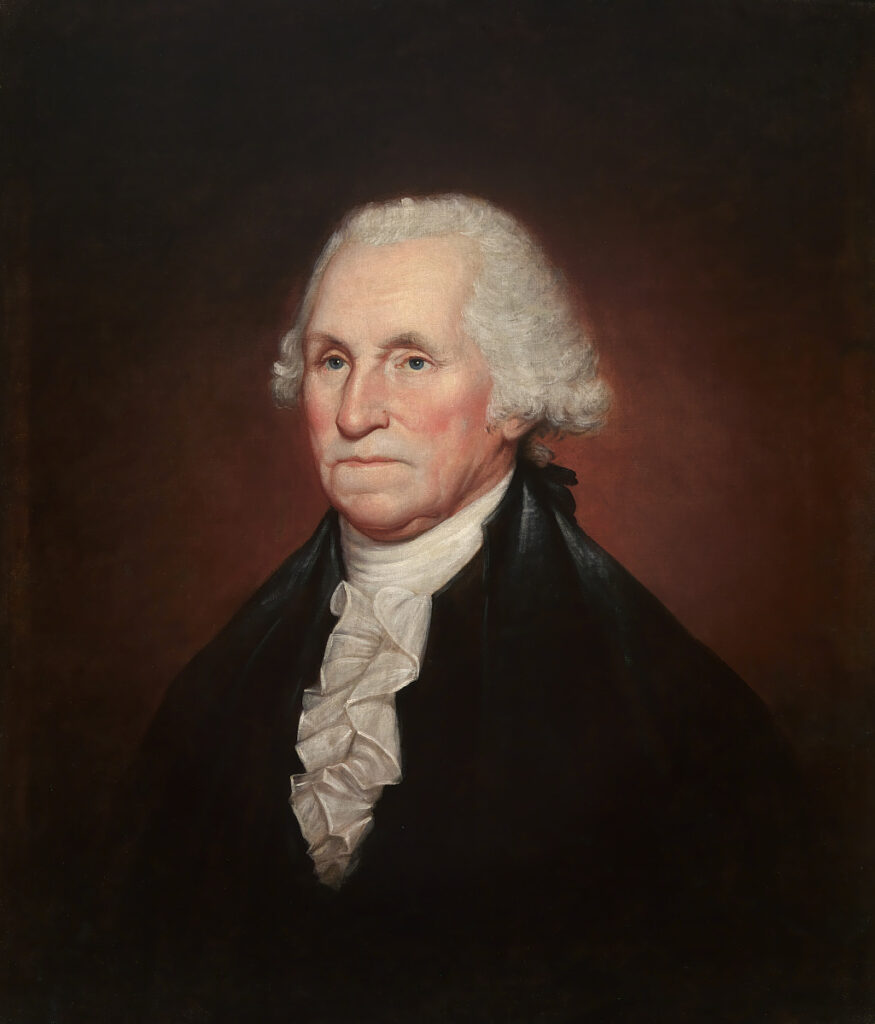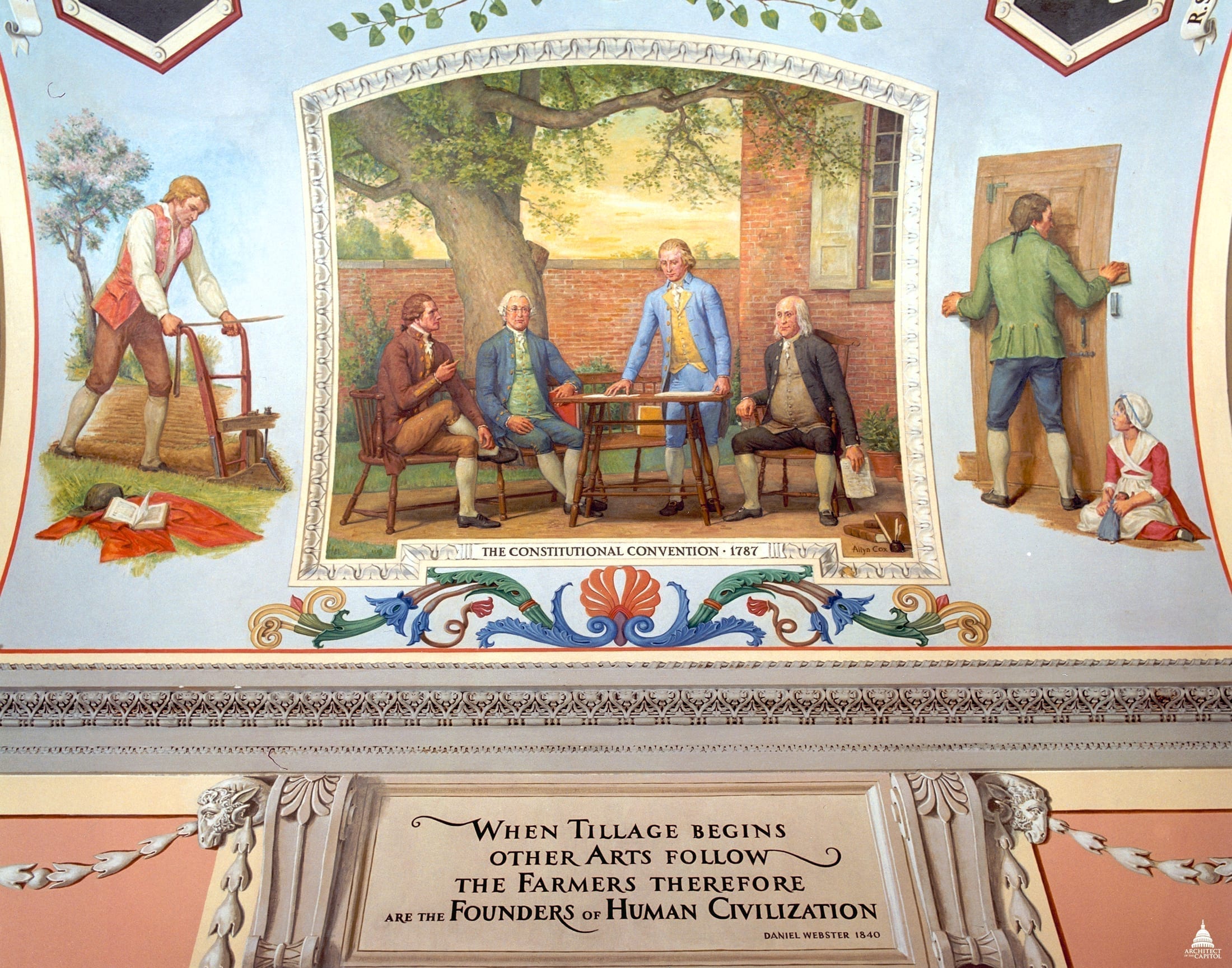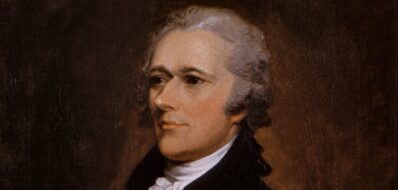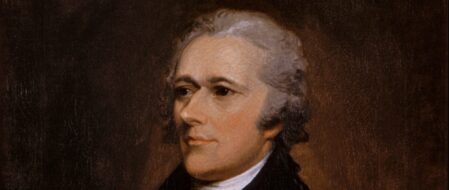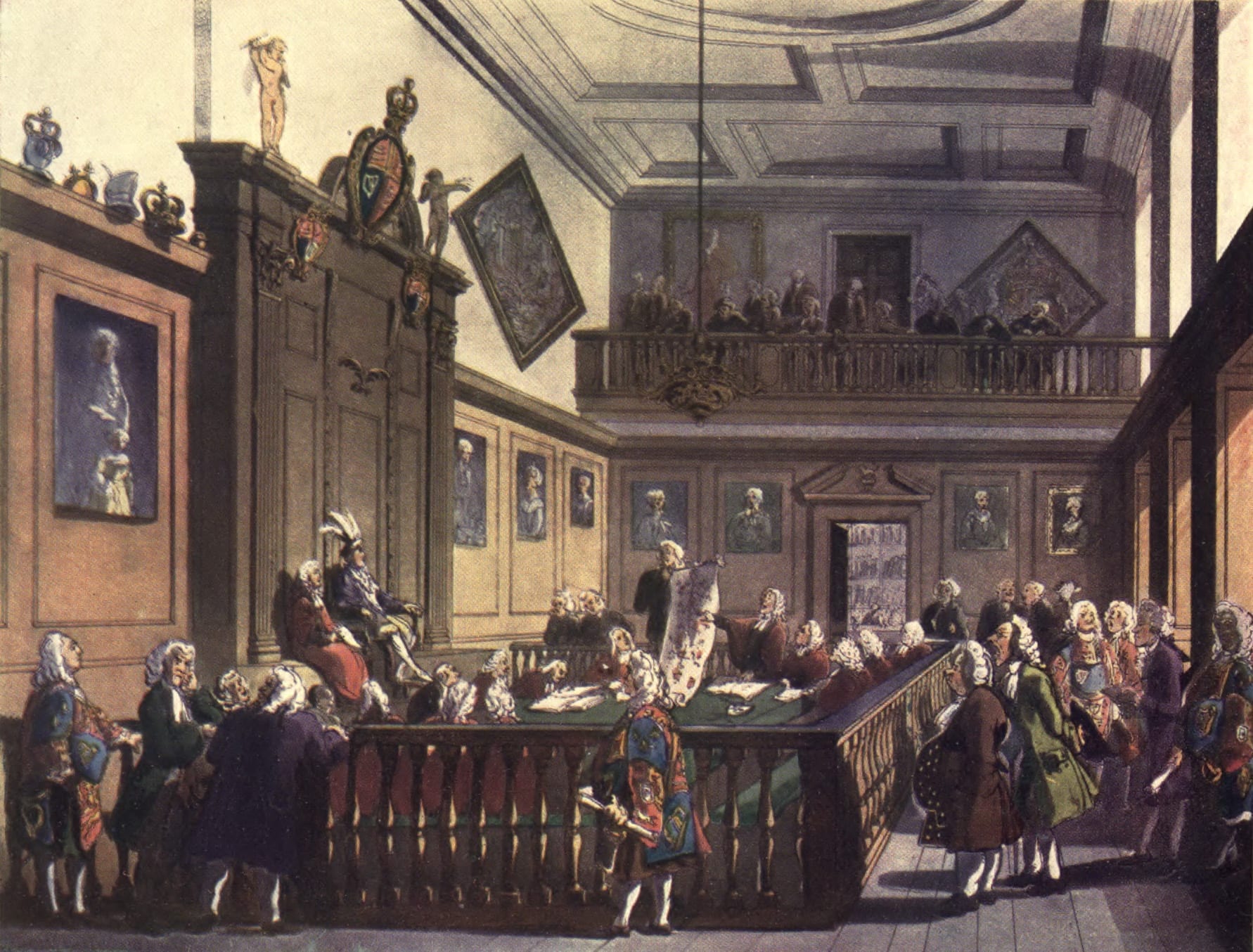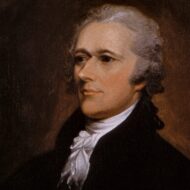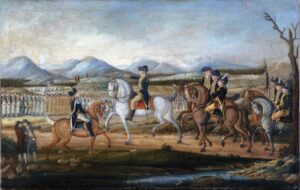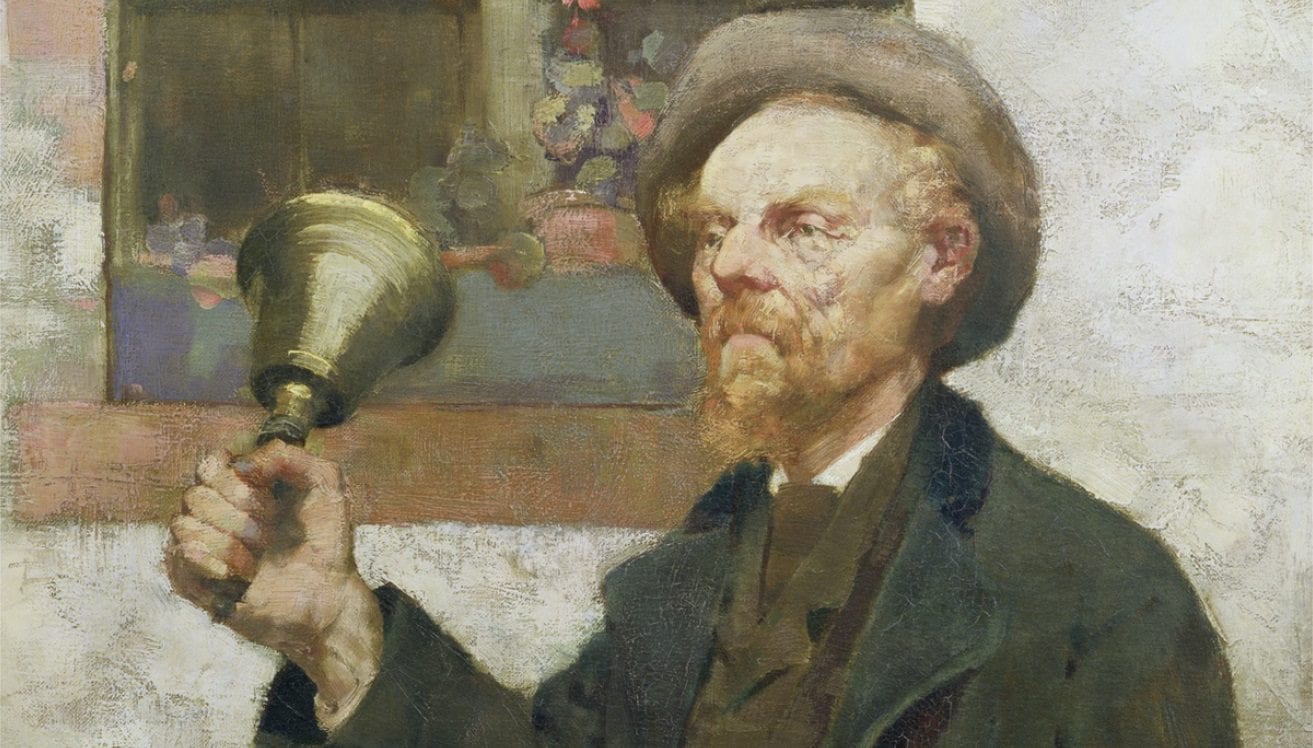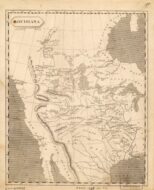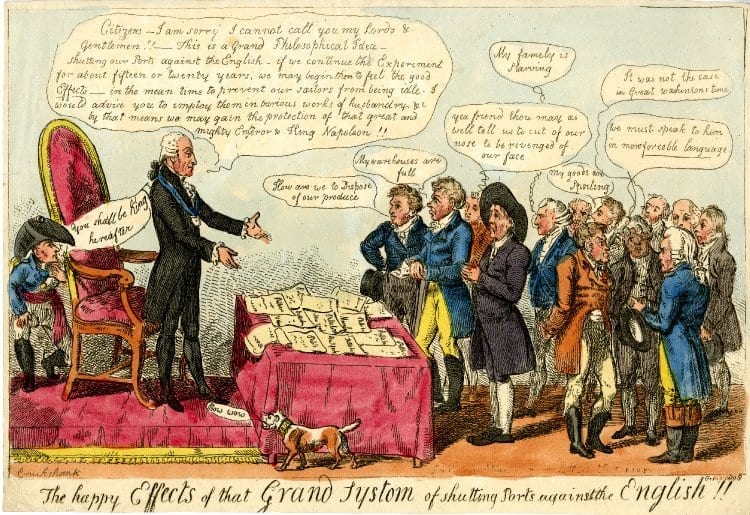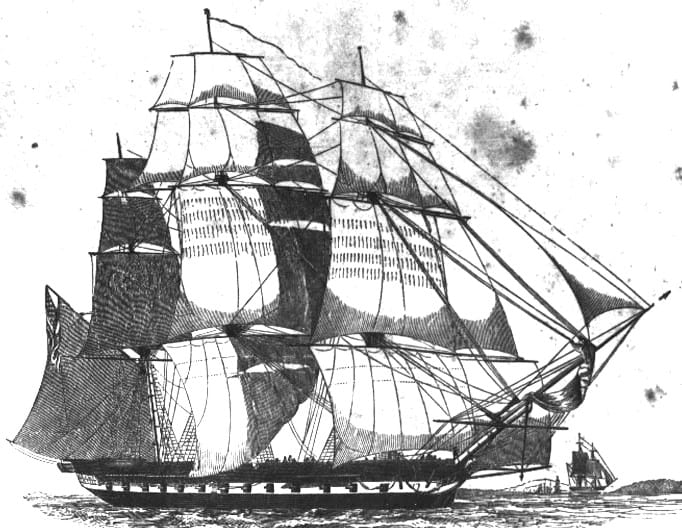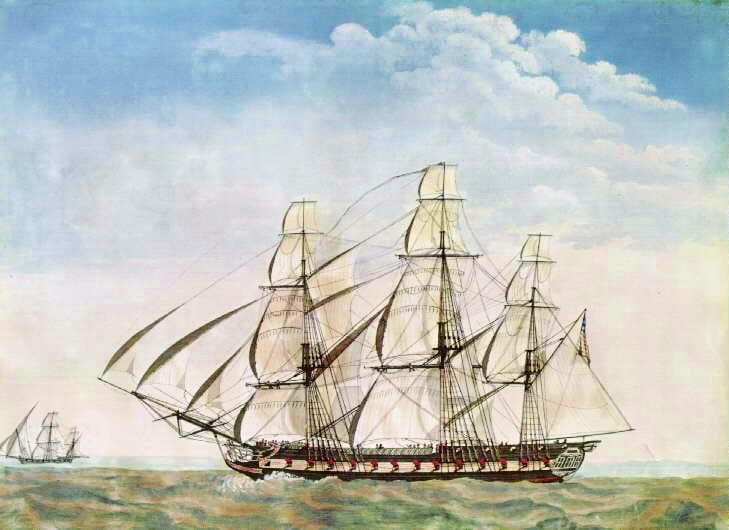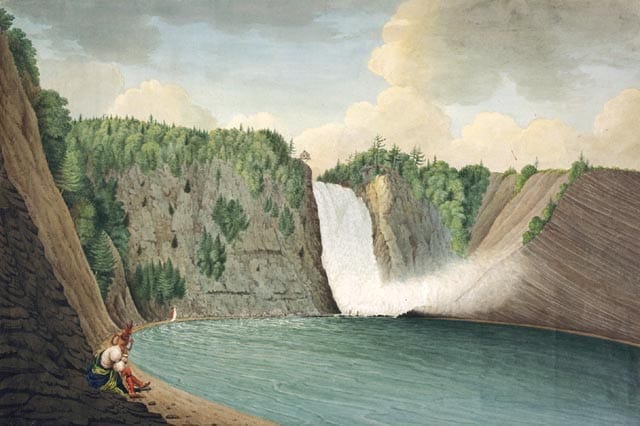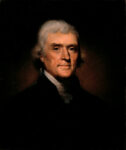“From George Washington to Gouverneur Morris, 28 July 1791,” Founders Online, National Archives, https://teachingamericanhistory.org/7396.
Dear Sir:
I have now before me your favors of the 22 of November and 24 of December 1790, and of the 9 of March 1791. The Plateaux which you had the goodness to procure for me arrived safe, and the account of them has been settled, as you desired, with Mr. Robert Morris. For this additional mark of attention to my wishes you must accept my thanks.
The communications in your several letters, relative to the state of affairs in Europe, are very gratefully received; and I should be glad if it was in my power to reply to them more in detail than I am able to do. But my public duties, which are at all times sufficiently numerous, being now much accumulated by an absence of more than three months from the seat of government, make the present a very busy moment for me.
The change of systems, which have so long prevailed in Europe, will, undoubtedly, affect us in a degree proportioned to our political or commercial connexions with the several nations of it. But I trust we shall never so far lose sight of our own interest and happiness as to become, unnecessarily, a party in their political disputes. Our local situation enables us to keep that state with them, which otherwise could not, perhaps, be preserved by human wisdom. The present moment seems pregnant with great events; But, as you observe, it is beyond the ken of mortal foresight to determine what will be the result of those changes which are either making or contemplated in the general system of Europe. Altho’ as fellow—men we sincerely lament the disorders, oppressions, and incertitude which frequently attend national events, and which our European brethren must feel; yet we cannot but hope that it will terminate very much in favor of the Rights of man; and that a change there will be favorable to this Country I have no doubt. For, under the former system we were seen either in the distresses of war, or viewed after the peace in a most unfavorable light through the medium of our distracted state. In neither point could we appear of much consequence among Nations. And should affairs continue in Europe in the same state they were when these impressions respecting us were received, it would not be an easy matter to remove the prejudices imbibed against us. A change of system will open a new view of things, and we shall then burst upon them, as it were with redoubled advantages.
Should we under the present state of affairs form connexions, other than we now have, with any European powers, much must be considered in effecting them, on the score of our increasing importance as a Nation; and, at the same time, should a treaty be formed with a Nation whose circumstances may not at this moment be very bright much delicacy would be necessary in order to shew that no undue advantages were taken on that account. For unless treaties are mutually beneficial to the Parties, it is in vain to hope for a continuance of them beyond the moment when the one which conceives itself to be overreached is in a situation to break off the connexion. And I believe it is among nations as with individuals, the party taking advantage of the distresses of another will lose infinitely more in the opinion of mankind and in subsequent events than he will gain by the stroke of the moment.
In my late tour through the southern States I experienced great satisfaction in seeing the good effects of the general Government in that part of the Union. The people at large have felt the security which it gives and the equal justice which it administers to them. The Farmer, the Merchant, and the Mechanic have seen their several interests attended to, and from thence they unite in placing a confidence in their representatives, as well as in those in whose hands the execution of the laws is placed. Industry has there taken place of idleness, and economy of dissipation. Two or three years of good crops, and a ready market for the produce of their lands, has put every one in good humour; and, in some instances they even impute to the Government what is due only to the goodness of Providence.
The establishment of public credit is an immense point gained in our national concerns. This I believe exceeds the expectation of the most sanguine among us; and a late instance, unparalleled in this Country, has been given of the confidence reposed in our measures by the rapidity with which the subscriptions to the Bank of the United States were filled. In two hours after the books were opened by the Commissioners the whole number of shares were taken up, and 4000 more applied for than were allowed by the Institution. This circumstance was not only pleasing as it related to the confidence in government; but as it exhibited an unexpected proof of the resources of our Citizens.
In one of my letters to you the account which I gave of the number of inhabitants which would probably be found in the United States on enumeration, was too large. The estimate was then founded on the ideas held out by the Gentlemen in Congress of the population of their several States, each of whom (as was very natural) looking thro’ a magnifying glass would speak of the greatest extent, to which there was any probability of their numbers reaching. Returns of the Census have already been made from several of the States and a tolerably just estimate has been formed now in others, by which it appears that we shall hardly reach four millions; but one thing is certain our real numbers will exceed, greatly, the official returns of them; because the religious scruples of some, would not allow them to give in their lists; the fears of others that it was intended as the foundation of a tax induced them to conceal or diminished theirs, and thro’ the indolence of the people, and the negligence of many of the Officers numbers are omitted. The authenticated number however is far greater, I believe, than has ever been allowed in Europe, and will have no small influence in enabling them to form a more just opinion of our present and growing importance than has yet been entertained there.
This letter goes with one from Mr. Jefferson, to which I must refer you for what respects your public transactions, and I shall only add to it the repeated assurances of regard and affection etc.


